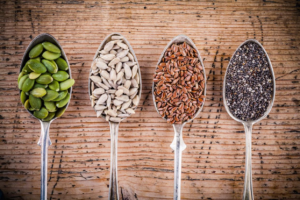Do your favorite fall beers have any health benefits? The truth behind IPAs, pumpkin ales and more.
If the changing leaves and cooler weather give you the urge to hunker down in a beer garden with a cold glass in hand, it’s little wonder. The end of summer also heralds the start of IPA season — when hops, the key ingredient in India pale ales, is harvested.
’Tis also the season of harvest-themed libations, when bars and alcohol aisles alike are filled to the brim with pumpkin-inspired beverages. But while we’re all for hailing the health benefits of seasonal fall produce, do our favorite fall beers have any advantages over other beers, as some have claimed? Here’s what to know.
What is an IPA?
Angel Planells, a registered dietitian and spokesperson for the Academy of Nutrition and Dietetics, explains that there are two main categories of beer: ales and lagers. Ales, including pale ales, “use a top-fermenting yeast, which ferments the beer at warmer temperatures, resulting in complex flavor.”

As CNN explains, India pale ales, or IPAs, came about during the 19th century when a brewer named George Hodgson created a beer utilizing lots of hops — which come from the flower of the Humulus lupulus plant and give beer its bitterness, aroma and flavor. Because hops were more abundant and cheaper in the fall, the beer style was originally known as “October Beer” and considered a “stronger, hoppier and more bitter cousin of the regular pale ale.” Hodgson — and eventually his competitors — shipped the beer regularly to British patrons in India, so it finally came to be known as India pale ale.
Some beer ingredients might be OK for you…
Amy Goodson, a registered dietitian, tells Yahoo Life that the hops in IPAs contain antioxidants like flavonoids, which reduce inflammation — though the amounts in a typical IPA serving “are not substantial.”
Craft beers, which tend to be made in smaller batches by smaller breweries, may also “use higher-quality ingredients and have fewer additives or preservatives than mass-produced beers,” Goodson notes.
Like other beers, Planells says, IPAs contain B vitamins like niacin, folate and riboflavin, which increase energy, red blood cell production and anemia prevention.




